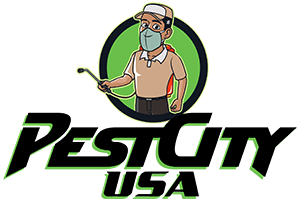Wildlife control in Detroit, MI
Wildlife damage means anything done by a wildlife species that causes human injury/illness, property damage, economic loss, or even loss of quality of life or well-being.
Raccoon damage can also cost you thousands of dollars in inflated heating and cooling bills. Beyond insulation, raccoons frequently damage ventilation and electrical systems that run through attics. Without repair, these damages can lead to fire, water damage and even mold.
Even worse than all of that, though, raccoons can cause serious damage to your home if they move into your attic, chimney, or eaves. Raccoons have even been known to rip shingles off or tear holes in the roof in search of shelter, causing damage that can cost many thousands of dollars to repair.

Raccoon Removal Services
Raccoons instinctively establish dens in tree cavities, caves, and abandoned homes of other animals, with nearby sources of water. Extremely adaptable and supremely omnivorous, they will eat almost anything they can find – insects, fruits, vegetables, nuts, and seeds. Human habitation then is a veritable paradise offering abundant water and food – garbage, unattended pet food and the like; and ideal spaces for their dens – in attics, under porches, garages and empty niches.
Small, hand-like paw prints and holes in yards, created when the pests dig for insects, trash lids mysteriously opened, disturbed garbage bins are signs of infestation; scratching sounds and foul smells are the clincher. Once noticed, it may be wise to contact wildlife control in Detroit. Female raccoons seek dark, quiet places to birth their litters (kits) and can have as many as seven kits in a year. So, they can cause havoc in the attic or crawlspace that they have taken over. The sounds they make the number more than 200; expressing excitement by screeching, chittering and chirping; issuing warnings by growling and snarling. And some sounds they make are bizarre – whistling or clicking teeth or screaming, which can be frightening at nighttime. This nuisance itself justifies calling up raccoon removal in Detroit for a solution.
Apart from being a mere nuisance, however, there are two compelling reasons for getting rid of these pests. The first is damage to property and the second is that they are vectors for disease.
Within their first winter, they insidiously destroy insulation and wiring. While entering and leaving dens they enlarge existing holes and being excellent climbers their trail of damage extends top-to-bottom and even to weakening structural integrity.
Raccoons set up latrines for excreting near their dens. These faecal deposits pile up and are not only foul but harbour parasitic roundworms that raccoons pass eggs in millions every day. Any kind of ingestion, such as the dust raised when trying to clean up such excreta, can lead to “larva migrans” and result in blindness, nerve or brain damage, and even death.
Further justification for contacting a wildlife removal expert lies in the fact that raccoons are one of the top animal carriers of rabies. Examination by expert agencies will confirm what the pest is and how to get rid of it.
It is always recommended to call upon the services of dedicated agencies such as raccoon removal because, rabid or not, raccoons are capable of ferocious attack when cornered.
Frequently Asked Questions
Common signs include scratching or scurrying noises, droppings, foul odors, damaged insulation, and visible entry holes around the roofline. If you notice any of these, it’s best to schedule an inspection.
Wildlife issues are most common in the fall and winter as animals seek shelter from the cold. Spring is also active, especially for raccoons and squirrels nesting.
Yes — Pest City USA offers same-day and emergency wildlife control services in Detroit and surrounding areas when available. Book now for priority scheduling.
Yes. Our methods are humane and non-toxic. We avoid any approach that could harm pets or pose a risk to children. All traps and deterrents are handled by licensed professionals.
Do not attempt to touch or move the animal. Contact us immediately — our team is trained to handle wildlife safely and legally, including situations involving young or injured animals.
